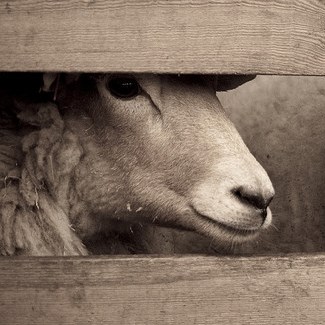THE ABIDING LIFE
Vision and The Little Prince
By Gwen Sellers

Continued from Page One
Biblically, I am reminded of people like Noah who was told to build an ark for a flood no one could predict (Genesis 6), Abraham who was told to move his family somewhere he'd never been before (Genesis 12), Moses who was told to lift up his staff and stretch out his hands for the Red Sea to part and make way for escape (Exodus 14), Joshua who was told to march around Jericho to conquer the city (Joshua 6), and many others (see Hebrews 11). God told people to do some strange looking things; but when they obeyed Him, He delivered on His promise. God might give us some strange sounding visions, too. Obviously we need to test the vision and be sure it is from God. But then we are called to walk in faith, relying on God's guidance for each step and trusting Him to continue to unfold the vision for His greater Kingdom purposes. Hebrews 11 talks about those who lived by faith; they accepted God's vision for their lives, obeyed His commands, and contributed to a much greater story. Vision from God is not just about us; it's an invitation to be part of God's universal plan.
In part because God's plans for our lives are not only about us, outside influence for understanding and walking out the vision is helpful. The Little Prince is not sure what the sheep will eat. He doesn't know how to care for it. So the narrator must teach him some things. At the same time, the Little Prince is at first unaware of the damage his sheep could cause to a beloved flower on his planet and needs to be warned and helped with prevention plans. Similarly, we need other people to give us input in the vision God has given us. We need them to help us figure out how to tend the vision and make it grow. We also need them to give us guidance about how the vision might get out of hand or cause unintended damage. Our dreams cannot just be about us, as the sheep is not just about the Little Prince. And yet our dreams can be fragile. Like the narrator, we need to recognize who will understand and help nurture that which God has placed in our heart — those people who will ask us to draw a sheep, who will not deny that some of our drawings are inaccurate or unhelpful but who also will not discourage us from pursuing that for which we were designed. And we need to be aware that there will be those who think we should focus on supposedly weightier matters. We need to be secure in the way God has designed us, to trust Him to let us know what is truly of consequence, and to pursue it without fanfare but also without swerving.
Some of us may need to ask God what the "sheep in the box" is in the first place. Others may need help with how to care for the sheep. Some may need help seeing how the sheep has gotten out of control and submit it back to God's care. For all of us, I pray that God would restore our sense of vision and ignite a passion for His Name's sake. May we faithfully follow our Good Shepherd, trusting that He is the ultimate artist and we are "his workmanship, created in Christ Jesus for good works, which God prepared beforehand, that we should walk in them" (Ephesians 2:10).
Image Credit: publicenergy; Creative Commons
Tags: Biblical-Truth | Christian-Life
Published on 3-24-2014
